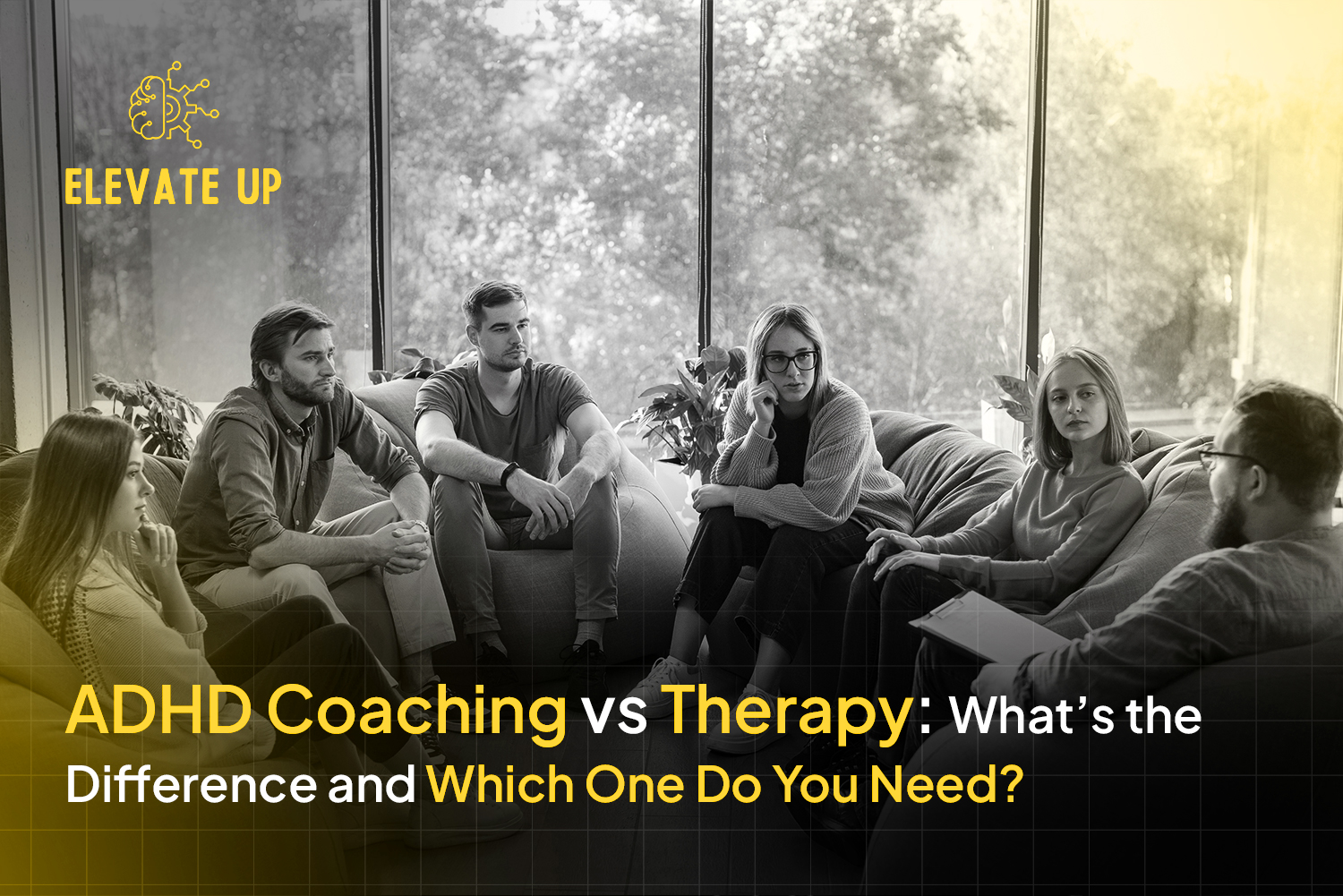If you’ve recently been diagnosed with ADHD, or even if you’ve been navigating it quietly for years, you’ve likely come across the terms “ADHD coaching” and “therapy.” They’re often used interchangeably, and that can create confusion. Are they the same thing? Should you pick one over the other? Or do you need both?
Let’s break it down in simple terms, so you can make an informed choice that’s tailored to you, not just your diagnosis.
What Is ADHD Coaching?
ADHD coaching is a collaborative, practical support system. Think of an ADHD Coach as someone who works with you to bridge the gap between what you want to do and what you get done. It’s not about diving into your past or exploring deep emotional patterns; it’s about helping you take action today and build systems that work for your future.
In the UK, ADHD coaching is becoming increasingly popular, especially as more adults seek support that feels more like personal development and less like clinical treatment.
Coaching focuses on:
- Managing time and building organisational habits
- Setting and achieving realistic goals
- Creating personalised routines that play to your strengths
- Reducing daily overwhelm
- Boosting self-trust and confidence
It’s forward-facing. Your coach won’t diagnose you or unpack your childhood. Instead, they’ll help you manage your day-to-day life in a way that works with your brain, not against it.
What About Therapy?
Therapy, or counselling, is more introspective. It’s a space to explore your emotions, address trauma, unpack long-held beliefs, and manage co-occurring conditions like anxiety, depression, or low self-esteem. It’s especially helpful for those who feel emotionally stuck, carry unresolved pain, or want to understand themselves on a deeper level.
Therapists may use evidence-based methods like CBT (Cognitive Behavioural Therapy) or DBT (Dialectical Behavioural Therapy) to guide the process. For ADHDers, therapy can be an essential space to work through feelings of shame, failure, or identity confusion that often stem from years of being misunderstood.
In short, while coaching helps you with what to do now, therapy helps you understand why you’ve been stuck in the first place.
So… Which One Do You Need?
Here’s the truth most people won’t tell you: it’s not about choosing a side. It’s about identifying the type of support that fits your current needs.
Ask yourself:
- Are you feeling stuck because you can’t organise your day, meet deadlines, or follow through on plans? → ADHD coaching could be a great place to start.
- Are you dealing with emotional distress, past trauma, or constant anxiety and self-doubt? → A licensed therapist may be the right path.
- Do you want to create structure in your life while processing deeper emotional patterns? → You might benefit from both coaching and therapy.
Your needs can shift over time, and that’s okay. What matters is choosing support that moves you forward from where you are right now.
Why ADHD Coaching is Gaining Momentum in the UK
Across the UK, ADHD coaching is finding its place not as a substitute for therapy or medication, but as a valuable tool in its own right.
With NHS mental health services often overwhelmed and long waitlists for ADHD-specific care, coaching offers a more immediate, personal, and flexible alternative. A certified ADHD Coach can work with you weekly or bi-weekly, helping you build strategies that are rooted in your real-life context , whether that’s exams, parenting, office life, or job transitions.
Organisations like Elevate Up are playing a leading role in shaping what high-quality coaching looks like in the UK. Their programs are built by neurodivergent professionals and focus on empowerment, executive function, holistic strategies, accountability, and outcome-driven growth. It’s not about “fixing” ADHD , it’s about supporting people to live and thrive with it.
Final Thoughts: It’s Not a Competition, It’s About Compatibility
You don’t have to be broken to go to therapy. You don’t have to be underproductive to hire a coach. ADHD presents differently in every individual, so the support should, too.
The real question isn’t, “Which one is better?”
It’s: “What kind of support will help me move forward right now?”
Maybe that’s therapy. Maybe it’s coaching. Maybe it’s both. Whatever you choose, know this: you deserve tools, compassion, and someone in your corner who understands that ADHD isn’t a flaw, it’s a different way of thinking.
Looking for ADHD Coaching in the UK?
If you’re exploring ADHD coaching UK options or want to connect with an experienced ADHD Coach, don’t wait. The right coach can help you turn frustration into focus , not by changing who you are, but by helping you work with your mind, not against it.



